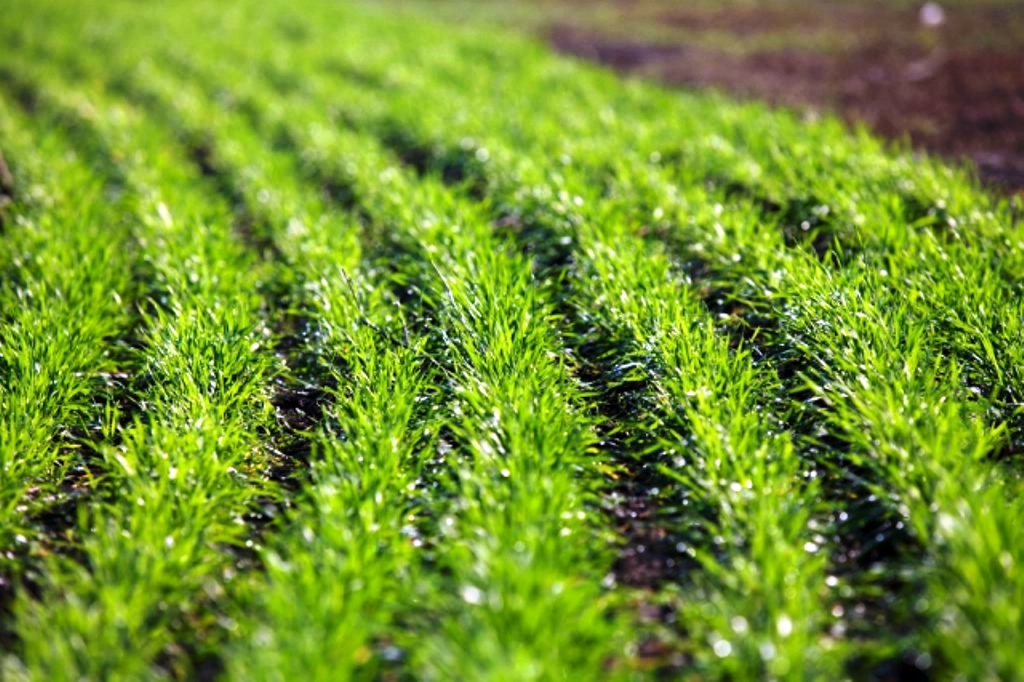
Agrarians see such an abnormally warm winter like this year for the first time in two decades. For some farmers, such weather has saved the wheat seedlings, while others see it as a threat to increasing rodent and pest populations. However, agricultural producers are converging on one thing: the heat combined with the absence of snow and rain has led to a critical moisture content of the soil, which adversely affects the condition of the crops.
As the participant of UAC, Head of the farm “Vira” Oleksandr Lahno from the Mykolayv region notes that the current warm winter saved the wheat seedlings in their region.
“There was very little rainfall in the autumn and it passed our strips. In some regions, rainfall has dropped around 50 cubic meters per hectare. This moisture is sufficient to descend the grain, which was 3-4 cm deep. And that grain, which was sown a little deeper according to technology, remained in the dry layer of soil and 60-70% of the areas remained haven’t sprouted at all. Therefore, in December, when it rained, and even in the presence of a plus temperature, it allowed the moisture to get deeper, reach the seeds, and it began to sprout. That is, autumn was so bad that winter saved us. We have fields where after the New Year the grain began to descend,”Oleksandr Lahno describes the situation.
In the future, the development of crops, the agricultural producer explains, depends on further weather conditions. If the spring is early, warm and humid, it will make it possible to add nitrogen fertilizers, to plant the plants and, accordingly, farmers can get a good harvest.
However, a very warm winter is a favorable environment for the growth of weeds and increasing the population of rodents that are damaging to crops. UAC member Yuriy Umrikhin, the head of SFG “Umrikhina Yu. M”, which is located in Kharkiv region, predicts that there will be a lot of them.
“Due to the warm weather, weeds are growing actively in the fields. Also, a lot of damage is done by mice. There are many in our region. We have a small supply of moisture – 400 millimeters, then - dry land. We had no rains in the summer and those rains in the fall did not provide the necessary moisture. This is not very good. We use minimal soil tillage technology, so we have used up those moisture reserves that could accumulate in the ground. Our crops were good. But the situation that there is no moisture at depth worries me,” Yuriy Umrikhin says.
In some farms, because of the relatively low amount of moisture in the fall, the rapeseed has partially or completely failed. And the one which sprouted - died in the first frost.
According to the participant of UAC, Head of “Vyazivske” FG Volodymyr Gava from Cherkasy region, from the sown 263 hectares of rapeseed the agrarian has lost 260 hectares. It estimates losses at more than one million hryvnias, which the farm spent on plowing, fertilizers, seeds. The agrarian notes that he has not seen such an abnormally warm winter in 25 years of management. Now, the owner admits, he is more concerned with the spring crops: how and what to sow if the soil moisture is too low.
“Well, let the snow cover be absent, but there is no rain; it’s all dry. The fact that it is warm now and there is no rain is very bad. We have practically no rainfall in the autumn and at the present time, making soil samples, we can see that the soil has got wet by 8-9 cm. It is extremely little for winter, because the moisture must connect with the lower layers of soil, then it is more- less worthy. Now I'm not so much worried about winter crops as it is about spring crops, especially corn. There is practically no moisture. In our area, it's just a catastrophic situation,” the agrarian says.
The same situation with rapeseed in the farm "Leon-Agro 2011" from Khmelnytskyi region: from 200 hectares only 40 hectares spouted. The head of the enterprise, a member of the UAC, Yaroslava Babiy, also complains about lack of moisture in the soil and fears unpredictability in weather conditions.
"What are we afraid of? We are afraid of frost and wind. If there is no snow, and there will be a frost of at least 5-6 degrees and a strong wind, then it will damage the winter crops, "- Yaroslava Babiy says.
Tuesday, 4 February 2020